What a year in cinema it has been for films from the East and Southeast! Korean cinema in particular has been enjoying one of its best years in blockbuster filmmaking with name titles like The Age of Shadows, The Handmaiden and Train to Busan all seeing timely releases here in Australia. This is an incredible effort by distributors as a few years ago, timely releases for Asian films in theatres were really usually only reserved for select films from China, Hong Kong, Taiwan and India (as they still are). We can perhaps thank the rising number of Korean expats working and studying in Australia for this!
Meanwhile, festival films like Singapore’s Apprentice, Tibet’s Tharlo and Japan’s five-hour long Happy Hour have continued to help showcase the diversity in voices and visions emerging from their respective regions. Really, there is no better time to be a fan of Asian cinema and 2016 has proven to be a year where countries like South Korea, Japan and Indonesia have seen some of their strongest output in years (at least, on an international scale).
While the Filmed in Ether team couldn’t get around to formally writing about EVERY film we saw this year (sorry, I Am Not Madame Bovary!), below is a compilation of our thoughts on some of the best films we saw in theatres and at festivals in 2016, as well as our favourite first-time viewings of classics both old and relatively new. After all, we’re all about discovering new voices and showcasing the rich tapestry of films in Asia!
Hieu Chau’s Favourite New Discoveries
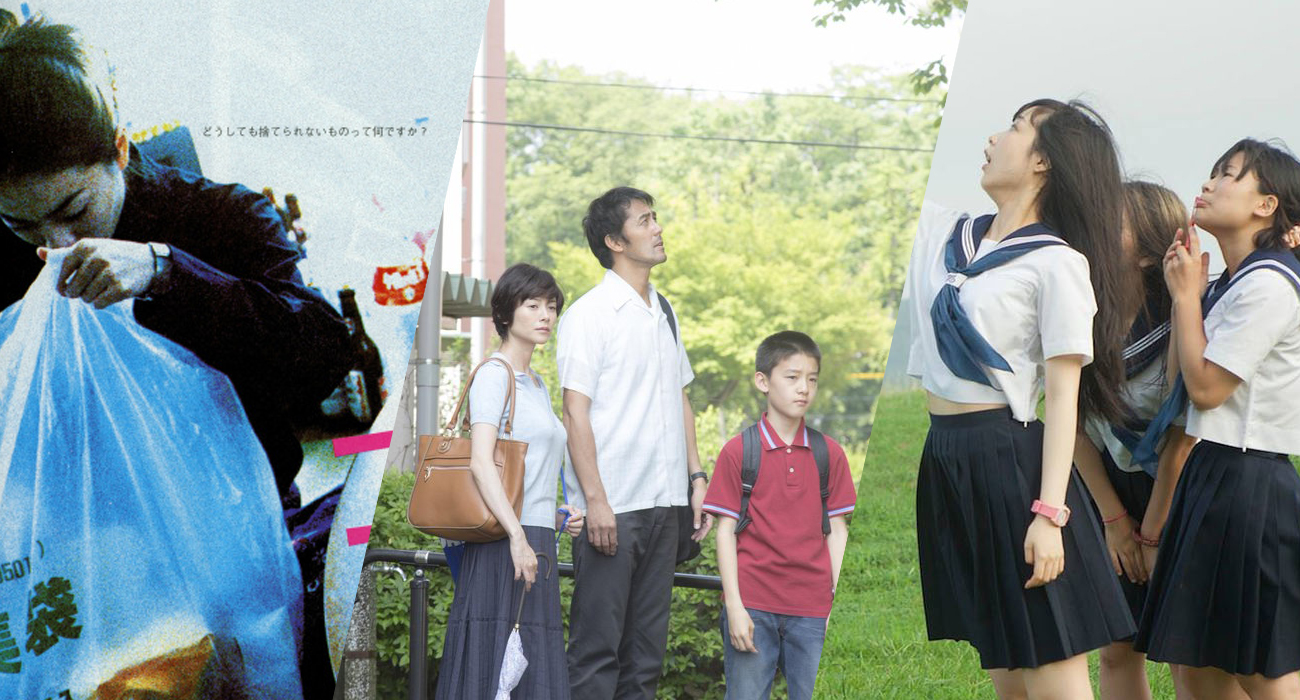
What are your favourite Asian films from 2016?
So many films to choose… I’m an unabashed Hirokazu Koreeda fanboy so his new film After the Storm is without question one of my favourites this year. The film just feels so assured and confident with what it wants to achieve and that’s no doubt a testament to Koreeda’s abilities as a storyteller; I loved it.
I also really enjoyed Our Huff and Puff Journey. It’s been great to see Daigo Matsui continue to bring alive the spirit of today’s youth on screen; I can’t wait for his next film. Chongqing Hot Pot really surprised me and felt really uncharacteristic of what I would normally expect from mainstream Chinese genre filmmaking. And I cannot forget to include Na Hong-jin‘s The Wailing, which I didn’t exactly love, truth be told, but it’s a film I constantly think about and return to and that for me is a good thing. Train to Busan was probably the most fun I had at a cinema in 2016 too.
And if I can mention short films too, I really liked Kamila Andini’s Following Diana and Rina B. Tsou‘s, Arnie – both were at this year’s MIFF.
Which older Asian films have you recently discovered this year?
Older films that I saw for the first time and was captivated by include stuff like the 2007 Korean fantasy horror fable, Hansel and Gretel, which is quite heartbreaking actually but also a bit of a fun ride.
I also found Noriko’s Dinner Table (2005) by Sion Sono and the lo-fi 2000 feature, Tokyo Trash Baby by Ryuichi Hiroki to be oddly profound and moving. And I finally got around to seeing Japanese horror classic Ringu for the first time! The best part about that film is easily the actual contents of the cursed video tape itself; so creepy and unsettling!
Natalie Ng’s Favourite New Discoveries
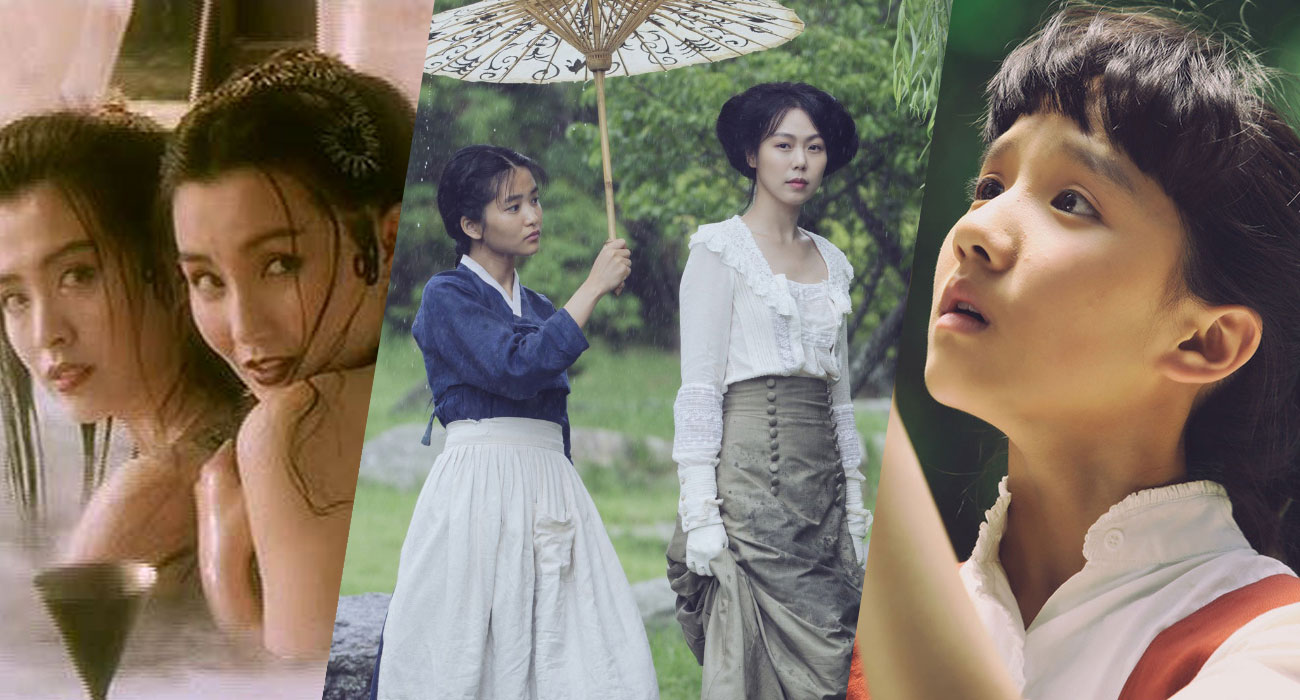
What are your favourite Asian films from 2016?
Every year, there’s always this lamenting over how film is dead or “what a bad year for film” but that kind of negativity has never suited me. I’m always optimistic every year for film, and usually it’s within Asian cinema that I find myself constantly surprised and enthralled with regards to the state of cinema.
My favourite film this year (and leading by a wide margin) is The Handmaiden. I’ve always enjoyed Park Chan-wook‘s work, but I have never been part of that kind of obsessive following he inspires as a result of Oldboy. His English language film, Stoker, was considered a misstep by many, but I think Stoker was a necessary and important step to the making of The Handmaiden which, I think, marks a new era for Park’s work. It is incredibly thrilling to see such an accomplished filmmaker enter a new stage of his filmmaking and not only is The Handmaiden incredibly entertaining, its focus on the inner lives of two very different women and their relationship also shows the maturity in Park’s character development.
Other 2016 releases that I loved include Hirokazu Koreeda’s After the Storm and Makoto Shinkai‘s Your Name. Wang Yichun also delivered an incredibly focused debut with neo noir/coming-of-age film What’s in the Darkness. And as a self-declared horror fan, I was also delighted to include Train to Busan and The Wailing into the canon of new and great horror films.
Which older Asian films have you recently discovered this year?
As part of my graduating project about Chinese folklore, I also watched many films that were relevant to my research. My two favourites were both peak ’90s Tsui Hark: 1993’s Green Snake (starring a young Maggie Cheung as the title character) based on the Chinese fable of ‘Madame White Snake’, and The Lovers (1994), based on another fable ‘The Butterfly Lovers’. They are both lesser known films of his oeuvre, but deserving of more recognition.
Hayley Inch’s Favourite New Discoveries
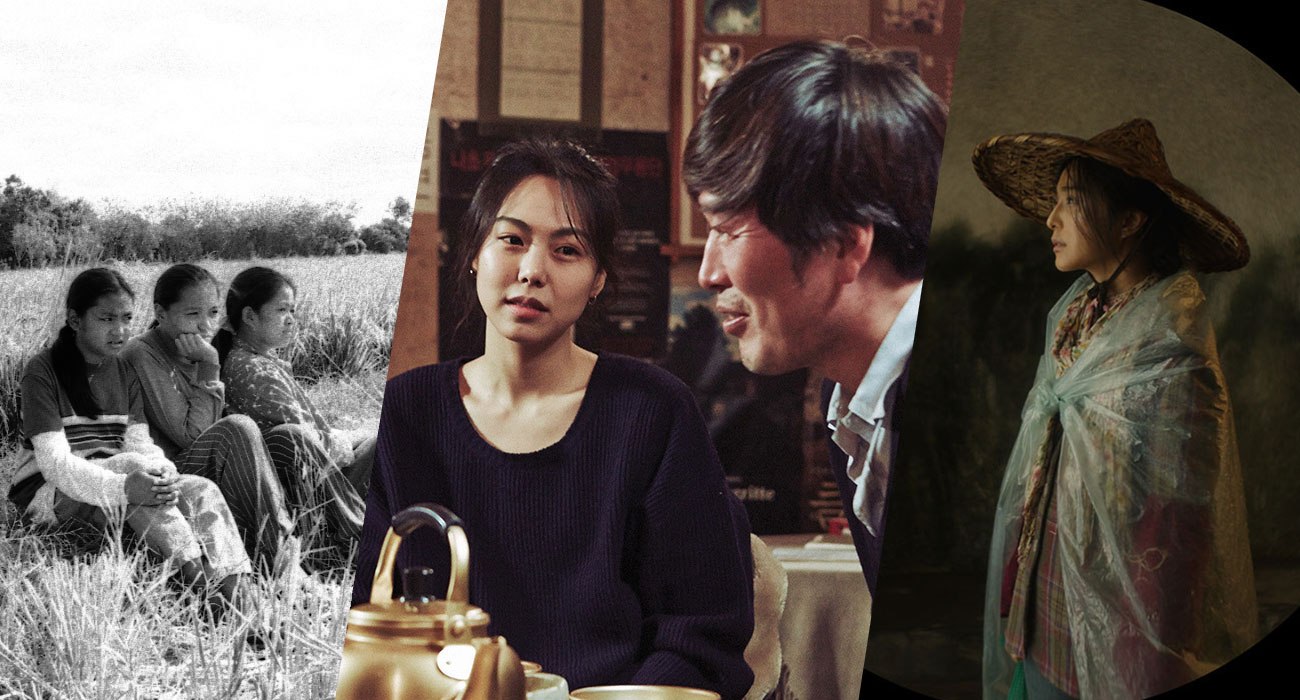
What are your favourite Asian films from 2016?
In new Asian cinema, my discoveries invariably cropped up during visits to film festivals. Nanfu Wang‘s powerful Hooligan Sparrow, focusing on feminist activists in China, took the breath out of me at Sundance. The surprisingly delightful Oyster Factory, Kazuhiro Soda‘s three hour long documentary about — you guessed it — an oyster factory, was my standout experience at the Sydney Film Festival (it’s more exciting than it sounds, and it’s also very important to note it heavily features a mischievous cat).
The Melbourne International Film Festival proved to be an embarrassment of Asian film riches, most importantly through its Southeast Asian Shorts package, which featured five fantastic short films by emerging filmmakers — three of them women — who proved conclusively that those only looking to East Asia for great cinema are missing out. MIFF’s longstanding support for the films of Hong Sang-soo and Hirokazu Koreeda saw both Right Now, Wrong Then and After the Storm screen at the festival, both arguably the best recent films from each director respectively.
2016’s spectacle cinema will be memorable in retrospect due to South Korea. The Handmaiden, The Wailing, and my personal favourite Tunnel, all had their effect on me (as did Ha Jung-woo‘s face). They are all instant classics, proving that the Koreans are leaving Hollywood in the dust in terms of intelligent, well-made blockbusters.
But what’s the one image of Asian cinema in 2016 that will stay with me above all? That image is Fan Bingbing‘s face as the last poignant, devastating lines are narrated in Feng Xiaogang‘s I Am Not Madame Bovary. Her face will haunt me until my own light is snuffed out.
Which older Asian films have you recently discovered this year?
It’s always a lot of fun filling in gaps and expanding your knowledge, and this year I was particularly grateful to the Melbourne Cinematheque for putting on seasons that allowed me to finally see Masaki Kobayashi‘s Kwaidan (1964) and Hymn to a Tired Man (1968), and Hou Hsaio-hsien‘s Three Times (2005). I also undertook, thanks to MUBI, my first Lav Diaz film: the ten and a half hour long Evolution of a Filipino Family (2004), a grand undertaking in every sense of the word. And in a year in which comfort films were sorely needed, I reaffirmed multiple times that Ang Lee‘s Eat Drink Man Woman (1994) is simply one of the best films ever made, hands down.
MIFF 2016 also featured a retrospective on the incomparable Setsuko Hara and I found their inclusion of Kozaburo Yoshimura‘s A Ball at the Anjo House (1947) a strong highlight. Hara gets to display both an iron will and a biting sense of humour in that film.
Brooke Heinz’s Favourite New Discoveries
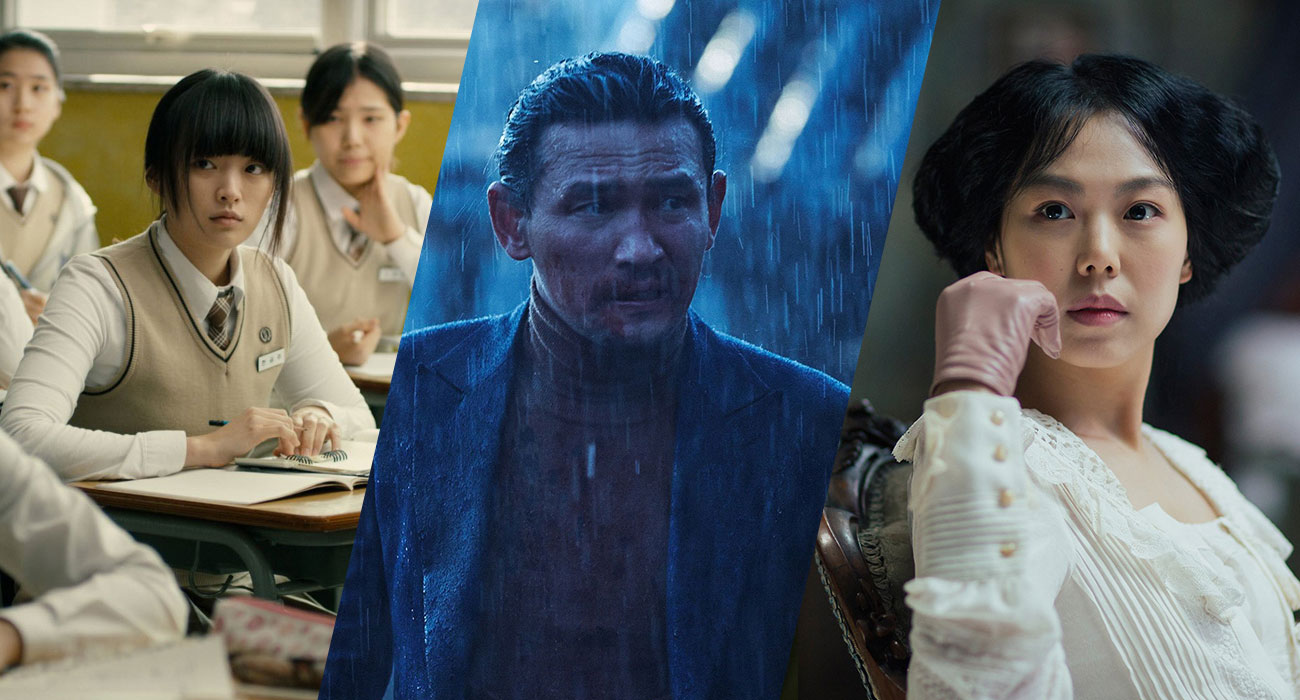
What are your favourite Asian films from 2016?
Followers of the festival circuit and Korean cinema in general are likely far from shocked that The Wailing appears several times on Filmed in Ether’s year-end list. And with great reason: Na Hong-Jin delivers a thrilling horror with a foreboding atmosphere and constant sense of unease unmatched by any other film this year.
But most impressive is the masterful incorporation of symbolism and foreshadowing. Those with a keen eye and background knowledge on Christianity, Japanese folklore, and Korean shamanism will find the unravelling of The Wailing’s mystery rewarding, with the most minor of props and costuming details (even down to the style of underwear!) providing hints at the wider enigma of the secluded town and its inhabitants. With so many cultural intricacies and references from multiple countries, The Wailing is a film that requires multiple viewings and discussion in order to fully grapple its complex, but far from inconsistent, plot.
Coming an extremely close second for my best-of-the-year is Park Chan-wook’s The Handmaiden. With a stunning soundtrack from Jo Yeong-wook, decadent visuals by cinematographer Chung Chung-hoon, and captivating performances from the entire cast, it’s surprising even to me that Park’s unapologetically erotic romance doesn’t top my list. However, the pacing and some strange editing choices, two technical aspects which Park’s films usually perfect, hold The Handmaiden back, if only by the smallest margin. Also earning honourable mentions this year are the box-office smash hit Your Name and Yeon Sang-ho’s thrilling Train to Busan.
Which older Asian films have you recently discovered this year?
My best film seen this year from the past is 2013’s Han Gong-Ju. The complex, heartbreaking performance of The Wailing’s Chun Woo-hee is arguably the highlight of the film. However, it is the greatly affecting tonal shifts that make it a fascinating watch: the contrasting of bubbly teenagers around Gong-Ju to her own horrific past make the final act all the more devastating. It is far from the most enjoyable film I have watched this year, but it definitely left the largest impact.
Matthew Rooke’s Favourite New Discoveries
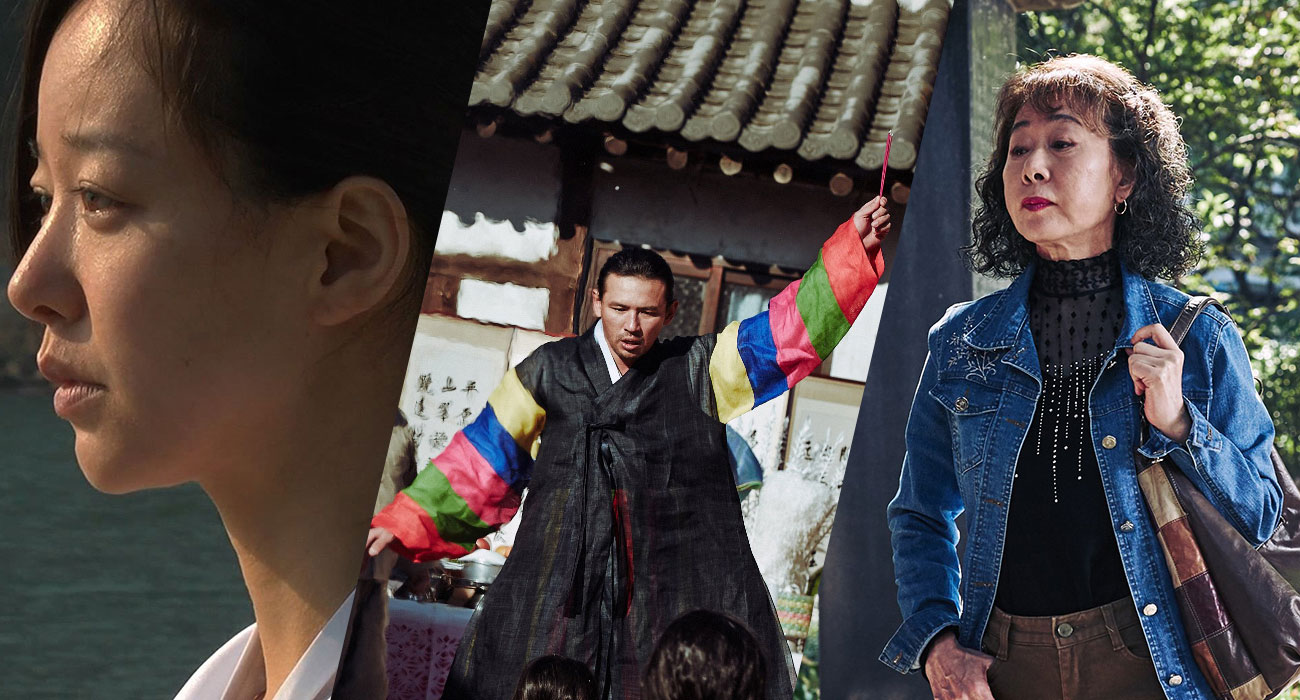
What are your favourite Asian films from 2016?
My favourite film for 2016 was The Wailing because screaming shamans, spirits and a liberal smattering of blood always make for good fare. Also, the film had just enough flaws to make it quite perfect. Beautiful acting, brilliant directing and compelling story. What a cracker.
Surprise of the year was Seoul Station by Yeon Sang-ho, a rampaging zombie thriller animation that I think topped its live action cousin, Train to Busan, which was also a nice film for the year.
The other most pleasant surprise was The Bacchus Lady; who would have thought that watching a senior citizen prostitute could be so heartwrenchingly beautiful? Youn Yuh-jung deserves all the accolades she gets as an actor. Just amazing.
Which older Asian films have you recently discovered this year?
A Fish is an older film that surprised me; watching this debut film of Park Hong-min from 2013 was a great companion piece to 2016’s The Wailing as connections to both films are made through its spiritual world, shamans, ghosts and hauntings. It’s no where near as intense nor malevolent as The Wailing but it does manage to delve into a side of Korean society that still exists today but clashes so beautifully with the modern country it so wants to be. This is a great ghost story that is full of plot surprises, beautiful visuals and structural oddities.
Theodora Vatubua’s Favourite New Discoveries
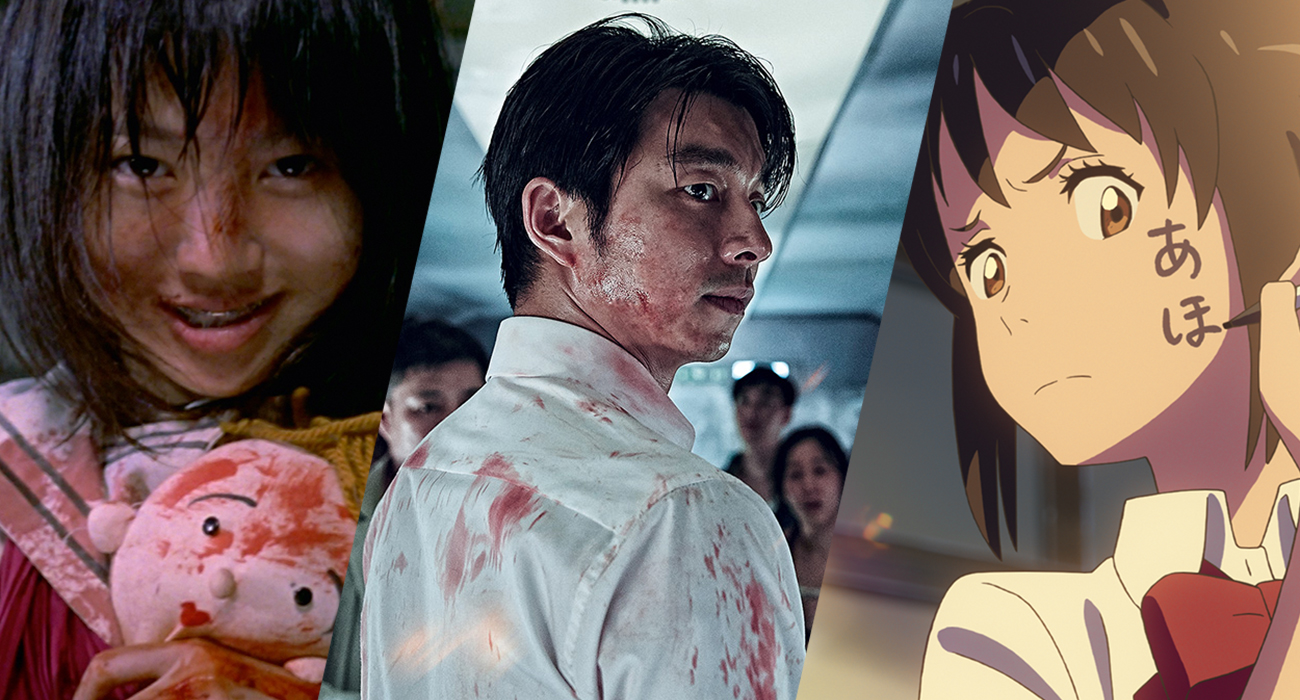
What are your favourite Asian films from 2016?
My favourite Asian film this year would have to be Train to Busan because that movie probably got the most reactions out of me this year (if you combine all my reactions towards the finale for The Walking Dead, they were there for this movie). It was just that kinda movie; I knew what was going to happen but continued to live in denial and got caught up in the action of it all.
Your Name is definitely another favourite of mine from 2016. I still can’t believe the man that brought us 5 Centimeters Per Second created this beauty (I still haven’t seen The Garden of Words). Makoto Shinkai has a storytelling talent which didn’t fail in this film but I liked that he laid back on the seriousness and added in humour, making it more comfortable for me to ease into the film.
I also enjoyed The Top Secret: Murder in Mind because the storyline was so interesting and I’m a sucker for crime films that blend sci-fi. This movie also made me add Keishi Ohtomo to my list of favourite filmmakers who can successful bring manga to life. Yes, there are still some flaws in his direction but I’ve not disliked a film of his since Rurouni Kenshin so needless to say, I am looking forward to his next films Museum and March Comes in Like a Lion (hopefully they’ll screen in Australia!).
Which older Asian films have you recently discovered this year?
I finally got around to watching Battle Royale this year! Yeah, I still can’t believe it has taken me this long to finally watch this film. I’m probably the last person on this Earth to finally watch this!
What are some of your favourite films this year? What films blew you away or left a huge impression on you? Was it an older film or a new one? We’re keen to know what you thought of the year that was for Asian cinema in 2016 and which Asian films you’ve finally caught up on so let us know in the comments below.
